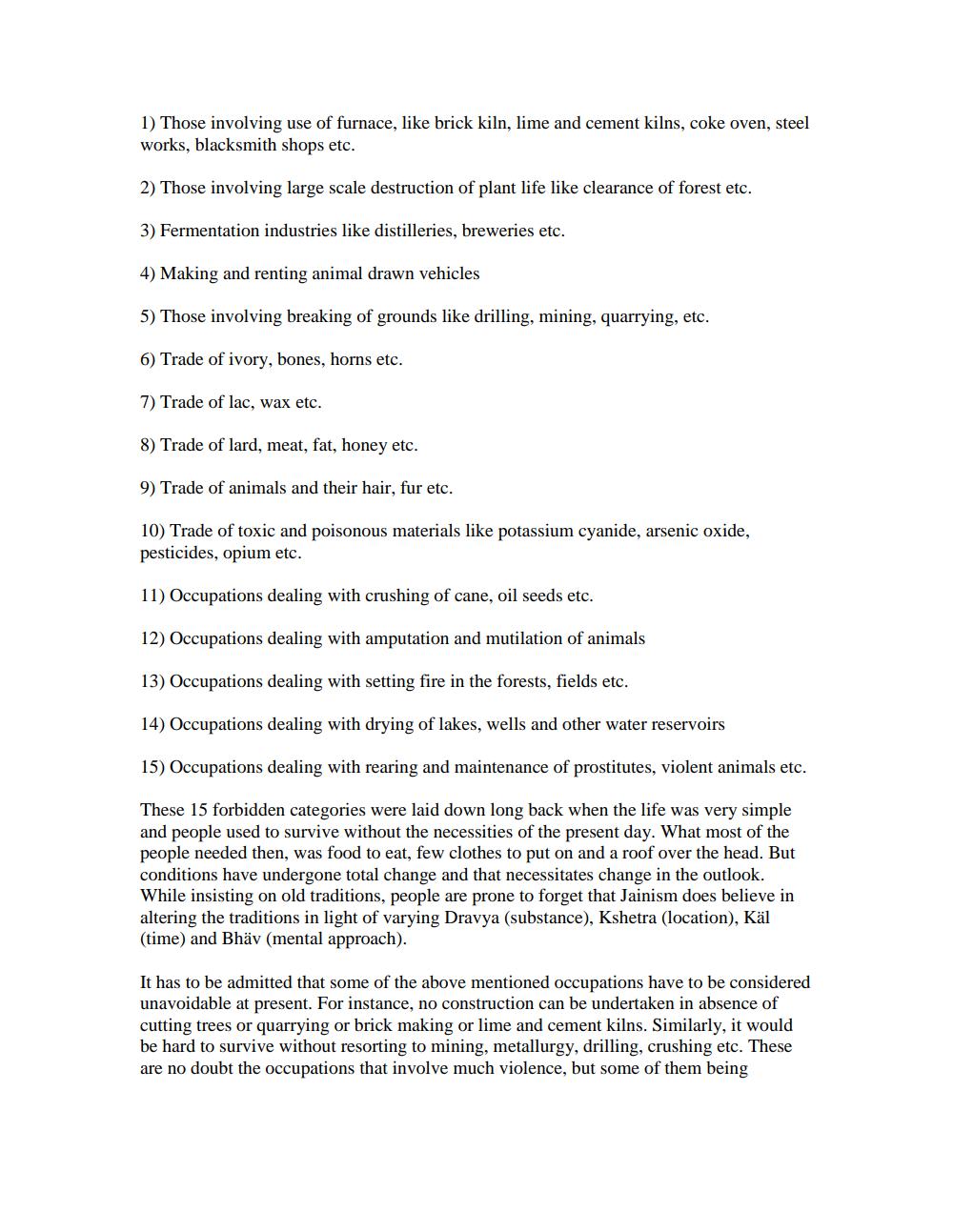________________
1) Those involving use of furnace, like brick kiln, lime and cement kilns, coke oven, steel works, blacksmith shops etc.
2) Those involving large scale destruction of plant life like clearance of forest etc.
3) Fermentation industries like distilleries, breweries etc.
4) Making and renting animal drawn vehicles
5) Those involving breaking of grounds like drilling, mining, quarrying, etc.
6) Trade of ivory, bones, horns etc.
7) Trade of lac, wax etc.
8) Trade of lard, meat, fat, honey etc.
9) Trade of animals and their hair, fur etc.
10) Trade of toxic and poisonous materials like potassium cyanide, arsenic oxide, pesticides, opium etc.
11) Occupations dealing with crushing of cane, oil seeds etc.
12) Occupations dealing with amputation and mutilation of animals
13) Occupations dealing with setting fire in the forests, fields etc.
14) Occupations dealing with drying of lakes, wells and other water reservoirs
15) Occupations dealing with rearing and maintenance of prostitutes, violent animals etc.
These 15 forbidden categories were laid down long back when the life was very simple and people used to survive without the necessities of the present day. What most of the people needed then, was food to eat, few clothes to put on and a roof over the head. But conditions have undergone total change and that necessitates change in the outlook. While insisting on old traditions, people are prone to forget that Jainism does believe in altering the traditions in light of varying Dravya (substance), Kshetra (location), Käl (time) and Bhäv (mental approach).
It has to be admitted that some of the above mentioned occupations have to be considered unavoidable at present. For instance, no construction can be undertaken in absence of cutting trees or quarrying or brick making or lime and cement kilns. Similarly, it would be hard to survive without resorting to mining, metallurgy, drilling, crushing etc. These are no doubt the occupations that involve much violence, but some of them being




